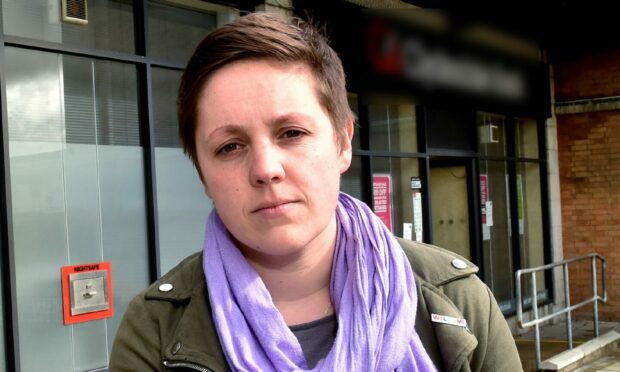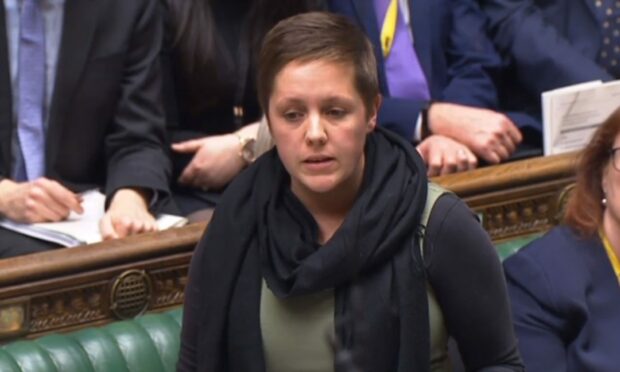SNP politician Kirsty Blackman says she finds it “difficult” to encourage young women to enter politics because of shocking levels of sexist online abuse.
The Aberdeen North MP is the latest female politician to speak up about the “vile” attacks online.
She says this has forced her to delete her Twitter app during weekends and holidays in order to spare herself from reading it.
And it makes it a challenge to recommend the career to prospective female candidates of the future.
Ms Blackman’s admission comes just a fortnight since Nicola Sturgeon warned social media abuse is starting to put women off a career in politics.
The first minister described how the increasingly “hostile” environment is “starting to make women think long and hard whether they want to go into politics”.
Online abuse
Ms Blackman said the abuse “tends to be worse for women” and described how male colleagues look shocked at the extent of it.
She added: “Some of us are standing up and talking about our experiences…The look on the faces of the guys…It is very clear that it’s very different in the response that they get online to the response that women get online.
“And that’s on a cross-party basis.”
Much of this is “very sexist and misogynist” but also directed at mocking struggles the politician has experienced with her mental health.
In 2020, the Aberdeen North MP opened up about suffering from depression, urging others to seek help if they are in the same situation.
The SNP politician stood down as the party’s deputy leader at Westminster that July to focus on her mental health, family and constituency work.
“Given I was so open about resigning due to my mental health as deputy leader, I get a huge number of people saying things like ‘oh take your tablets'”, Ms Blackman said.
“It’s just ableist. It’s just saying that someone with a disability shouldn’t be in politics.”
Speaking last week at a Commons committee debating the online safety bill, Ms Blackman said that she is often asked to speak to young people about becoming an MP or getting involved in politics.
She said: “I find it difficult to say to young women ‘Yes, you should do this’ , and most of the reason for that is what people are faced with online.”
Ms Blackman told us that online abuse is “one of the most common conversations” she has with young activists.
She added: “People will be saying ‘how do you cope with it?’ or ‘I couldn’t cope with it’.
“It’s very, very regular that people will talk to me about that.
The MP continued: “If you tweet something…every single response it feels like is abusive. It’s difficult not to be affected by that, you just are.
“Sometimes particularly at weekends or during holidays I’ll delete the app so that it’s more difficult for me to go on Twitter without thinking about it first.”
How can protection improve?
The SNP politician wants to see action taken to protect everyone that stands for election, as is the case for sitting MPs.
Ms Blackman said: “People who are standing for candidacy should be given an email address as a candidate.
“It would allow them to not have to give out their own email address and I think that should be done at all levels.
“I think we should ban any candidate from publishing their home address because some people don’t realise the difficulty they could get into by doing that.
“We have security advice here. And if you were to publish or produce a couple of sheets on that and give that to anybody that’s standing at any level. That would really be a good starter for 10.”


Conversation